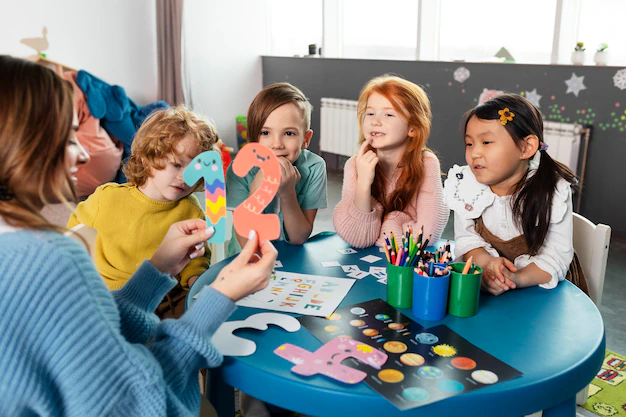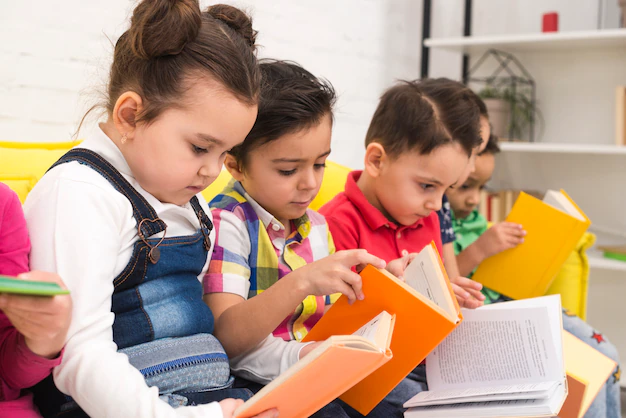Developing Comprehensive Lesson Plans for Preschoolers: Samples, Structure, and Strategies
Crafting lesson plans for preschoolers demands a thoughtful blend of structured activities and play-based learning experiences that cater to their developmental needs. These lesson plans serve as a roadmap for educators to create engaging and purposeful activities that support the diverse growth areas of preschool-aged children. Here’s a comprehensive guide, including a structured table and sample activities, to assist educators in creating effective lesson plans for preschoolers.

Page Contents
Lesson Plan Structure for Preschoolers
Objective: Promote holistic development encompassing cognitive, social-emotional, language, and motor skills.
| Components | Description |
|---|---|
| Introduction | Greeting, short opening prayer, settling activity to focus attention and engagement. |
| Circle Time | Interactive group activity for songs, stories, or discussions. |
| Learning Centers | Rotating activities fostering exploration in various domains. |
| Snack Time | Structured time for a healthy snack and social interaction. |
| Outdoor Play | Physical activity promoting gross motor skills and socialization. |
| Conclusion | Recap of the day’s activities, calming activity before departure. |
Sample Lesson Plan Activities
- Introduction (10 minutes)
- Greeting Time: Short Opening prayer, welcome children with a song or interactive greeting to create a warm atmosphere.
- Settling Activity: Engage children with a simple puzzle or sorting game to transition into the lesson.
- Circle Time (15 minutes)
- Objective: Encourage social interaction and language development.
- Activity: Storytelling and Puppet Show
- Engage children with a story using colorful puppets, encouraging participation and discussion.
- Learning Centers (30 minutes)
- Objective: Promote exploration and learning in different areas.
- Centers:
- Art Center: Finger painting with various textures and colors.
- Science Center: Sensory bin filled with water, measuring cups, and floating objects.
- Block Center: Building structures using blocks or construction toys.
- Snack Time (15 minutes)
- Objective: Encourage healthy eating habits and social interaction.
- Activity: Snack Sharing Circle
- Provide a variety of healthy snacks and facilitate a discussion about different foods.
- Outdoor Play (20 minutes)
- Objective: Foster gross motor skills and social interaction.
- Activity: Playground Exploration
- Allow children to engage in physical activities like climbing, running, and playing with others.
- Conclusion (10 minutes)
- Recap: Review the day’s activities briefly, emphasizing key learning moments.
- Calming Activity: Wind down with a quiet story or song to prepare for departure.
Strategies for Effective Teaching
- Play-Based Learning: Incorporate hands-on and play-based activities that promote exploration and creativity.
- Individualized Learning: Adapt activities to accommodate different learning styles and abilities.
- Positive Reinforcement: Use praise and encouragement to reinforce positive behavior and achievements.
- Engaging Transitions: Smooth transitions between activities using songs, visuals, or simple games.
- Observation and Assessment: Observe children’s participation and progress to inform future lesson plans.
Conclusion
Creating lesson plans for preschoolers necessitates a thoughtful balance between structured activities and opportunities for exploration and play. These plans aim to engage children in meaningful learning experiences that support their development across various domains. Educators play a pivotal role in creating a nurturing and stimulating environment that fosters the growth and learning of preschoolers. By incorporating diverse activities and employing effective teaching strategies, lesson plans can become invaluable tools in supporting preschoolers’ learning journeys.
Crafting lesson plans for preschoolers involves careful consideration of their developmental needs, interests, and learning styles. The provided structure, sample activities, and strategies aim to assist educators in creating engaging and purposeful experiences that support preschoolers’ holistic development.







